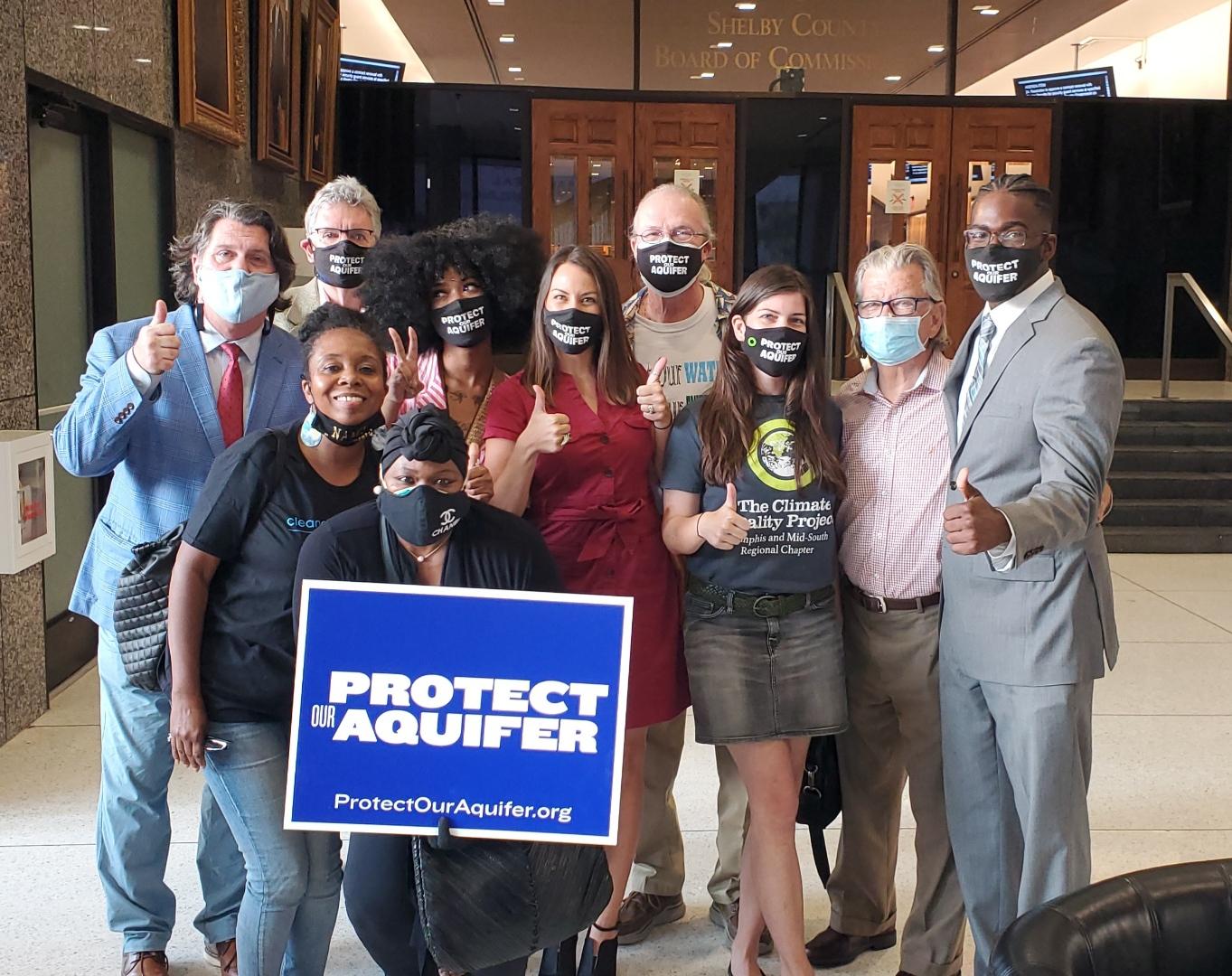Concerned citizens in Memphis finally have some concrete means for fighting back against future pipeline projects.
Pearl Eva Walker | September 24, 2021 | Climate Change, Energy Justice, TennesseeBrady Watson, former Civic Engagement Coordinator for the Southern Alliance for Clean Energy, also contributed to this blog post.
UPDATE: At their meeting on Tuesday, October 5, the Memphis City Council approved on the first of three readings an ordinance that puts future pipelines under a city process that goes much broader than the wellhead ordinance the Council approved in September. We will continue to provide updates as future votes occur.
After months of delays, revisions, legal maneuvering, and public pressure, the Memphis City Council passed an ordinance on Tuesday night, September 21 that will provide protection to Memphians and their drinking water from oil pipeline spills and other potential sources of pollution. More than 2 months since the Byhalia crude oil pipeline project was officially canceled, concerned citizens in Memphis finally have some concrete means for fighting back against future pipeline projects.

Memphis City Council Ordinance 5795 passed on final reading by a unanimous 13-0 vote, and will create a water wellhead protection overlay in the City code. The overlay will outline a protected area around the city’s drinking water source, the Memphis Sand Aquifer, to protect it from pollution from future oil pipelines and other infrastructure near water wellheads. The ordinance covers more than a dozen uses, including oil pipelines and gas pumps, and was based on Tennessee Department of Environment and Conservation guidance that listed possible contaminants. City Attorney Allen Wade sought to keep the ordinance broad and not focus specifically on crude oil because he feared a narrower focus could raise legal issues for the city.
Those legal concerns were raised again later in the meeting on two other ordinances specifically targeting crude oil pipelines, which now face more uncertain futures. The first, which has now been delayed, is a joint city-county ordinance that would specifically ban crude oil pipelines within 1,500 feet of certain areas, such as parks, schools, and churches. The other ordinance would establish a permitting process that would require City Council approval of pipelines for the city version of the ordinance, but sets up an entirely separate appeals process in the county version. The separate appeals process caused this ordinance to be tabled indefinitely.
The 1,500 foot setback ordinance has already been approved by the Shelby County Commission, and has support among some on City Council. “I don’t think you can have too much coverage to protect your water,” said Council member Rhonda Logan. Councilman JB Smiley was also supportive, but given his legal background, he raised concerns about legal challenges from the Valero refinery, which was a partner on the Byhalia Pipeline project. These legal concerns about specifically targeting crude oil pipelines led to the ordinance ultimately being delayed. Councilman Jeff Warren, the sponsor of all three ordinances who has been working on rewrites and substitutes for months, admitted there could be more steps to find information and make sure everyone was comfortable voting on the setback ordinance in October. “I think we should back our county commissioners,” he said of the joint ordinance. “I think it’s good law and it provides us an additional protection of our community. But I need all of you to come to that conclusion.” Warren then made the motion to table the ordinance setting up the permitting process, which will require a motion and a separate vote for the council to bring it back up for consideration.
MCAP, Protect Our Aquifer, SACE, SELC, Sierra Club, The Climate Reality Project, and other partner groups who led original and successful opposition to the Byhalia pipeline, will continue to monitor the situation and advocate for protections for the people of Memphis, the city’s water supply, and the Memphis Sand Aquifer. While City Council attorney Allen Wade raised doubts about the legal defensibility of claims of environmental racism, there are clearly disparate impacts from years of pollution already in the area of Southwest Memphis where the Byhalia Pipeline was originally slated to be routed. The need to stop future development of polluting fossil fuel infrastructure is clear, and any instance of environmental racism should be taken seriously.